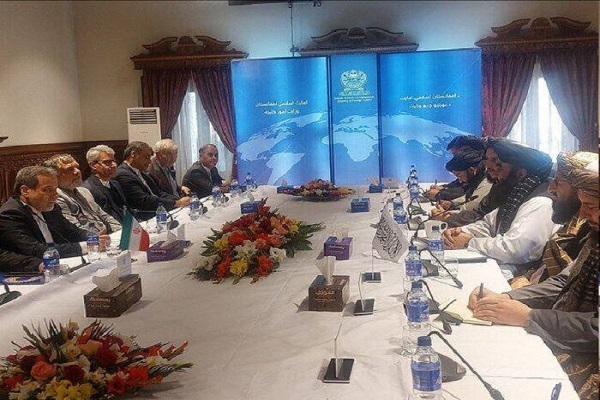
TABNAK, Jan 26: Araqchi, heading a political and economic delegation, arrived in Afghanistan’s capital Kabul on Sunday morning, where he held talks with Afghanistan’s Acting Minister of Foreign Affairs Amir Khan Muttaqi.
The top Iranian diplomat described Iran and Afghanistan as two friendly, brotherly, and Muslim nations, saying that they have profound cultural and historical connections.
He made the remarks as the two neighbors are facing water crisis due to Afghanistan’s dam building on shared Helmand River.
The Hirmand River, shared by Iran and Afghanistan, is a vital water source for the region. The equitable distribution of its water has long been a matter of concern, with Iran advocating for the enforcement of prior agreements on water rights.
Although a 1939 treaty was drafted to address water sharing, it was never ratified by Afghanistan, leading to protracted disputes. In 1973, the two nations agreed that Afghanistan would allow a flow of 26 cubic meters per second—equivalent to 820 million cubic meters annually—into Iran. However, political upheavals, including a 1973 coup in Afghanistan, prevented the agreement from being fully implemented.
Efforts to resolve the issue continued with a bilateral agreement in 2003, but Afghanistan has repeatedly failed to honor the treaty’s terms. This has exacerbated the situation, leaving Iran struggling to secure its rightful share of water.
Over the past five decades, Afghanistan has developed plans to control its water resources, especially in the Harirud and Hirmand river basins, with hydroelectric projects that have sparked friction with Iran.
Araqchi also expressed optimism that his current visit would help enhance bilateral relations, secure national interests of both countries, and foster cultural interactions.
Muttaqi, for his part, expressed hope that the visit by Iran’s foreign minister would elevate the level of mutual ties.
Iran and Afghanistan are two neighboring Muslim countries that always share each other’s joys and sorrows, he noted.